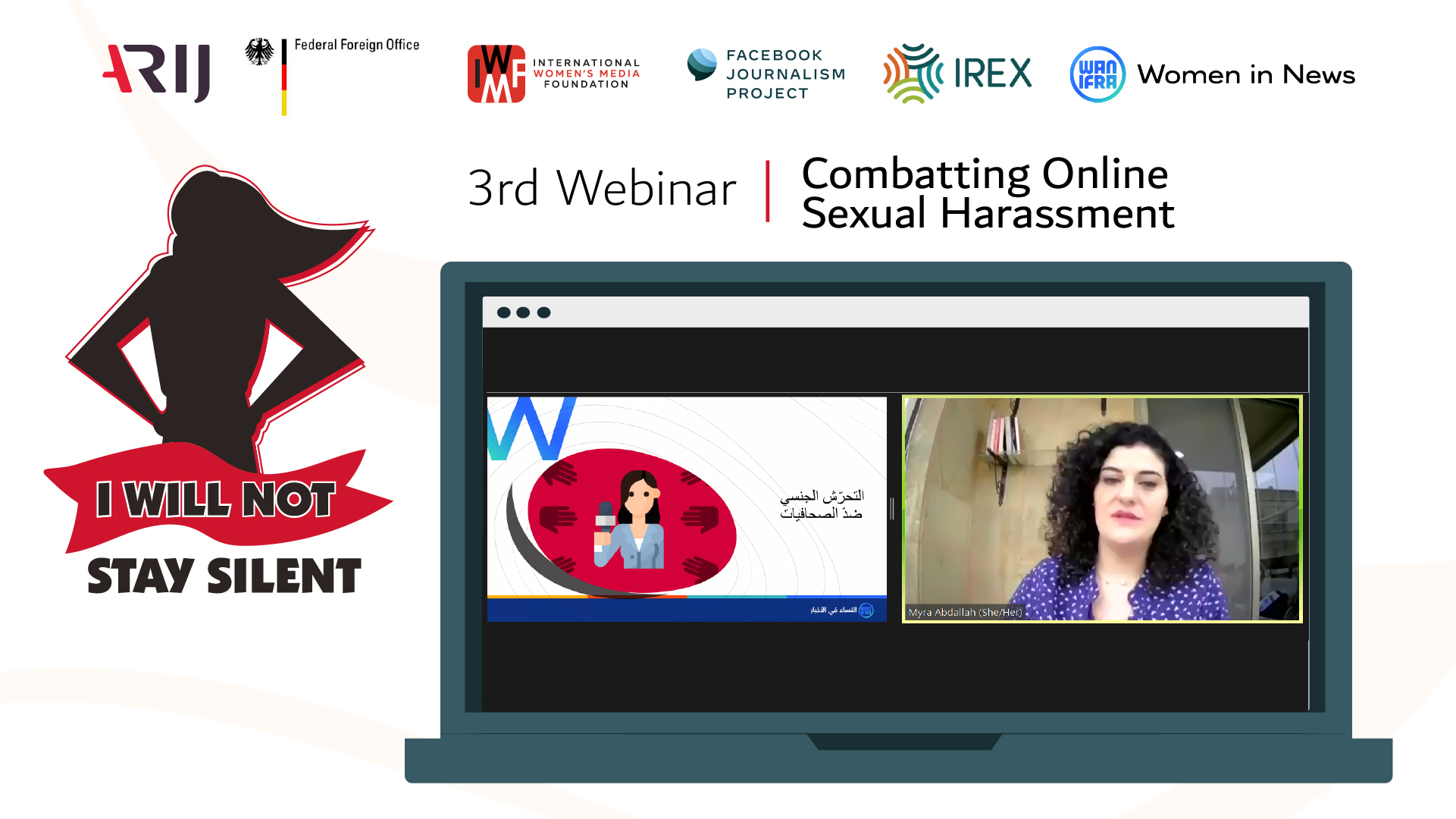Amman, 23 March 2021
On 22 March, the third session in the I Will Not Stay Silent webinar series, was conducted and attended by more than 90 journalists, researchers and activists from the Arab world. The session addressed the various types of sexual harassment in the real and virtual worlds, and explored its ramifications and ways to protect ourselves. I Will Not Stay Silent is a year-long project launched by ARIJ (Arab Reporters for Investigative Journalism) in partnership with the Facebook Journalism Project, Women in News / WAN-IFRA, the International Women’s Media Foundation (IWMF), and SAFE, IREX, and supported by the German Federal Foreign Office that aims to create a safe, pluralistic, and diverse media environment that is free of discrimination.
The session was led by Myra Abdallah, a Lebanese independent journalist and trainer specialized in gender literacy, gender bias in media, and countering sexual harassment. Abdallah is also the communications manager at WAN IFRA’s Women in News program. The session was moderated by Dr. Rouba El Helou, political communication and gender lecturer at Notre Dame University, Lebanon.
Attendees actively participated in the various topics addressed in the ninety-minute session. Abdallah started by defining sexual harassment as “unwelcome behavior of a sexual nature that violates the dignity of the victim and causes them to feel insulted, fearful, and threatened.” Abdallah opined that both sexes experience sexual harassment in the workplace, however, women experience it at a higher rate than men, partly because of the dominant culture that makes it difficult for women to come forward and the absence of effective anti-harassment laws in most Arab countries.
The session explored physical and verbal sexual harassment, how it is experienced in the workplace — at the office, at conferences, or in the field — and online, including on social media platforms.
Abdallah presented a study on sexual harassment reporting in the Arab world. According to the findings, 59% of women surveyed said they had experienced verbal sexual harassment, while 17% said they experienced physical sexual harassment, and 3-10% said they experienced sexual harassment that led to rape.
Abdallah warned of the dire consequences sexual harassment survivors face, including serious psychological harm leading to low productivity, mental disorders, depression, and low immunity. Meanwhile, the harasser is ostracized by society, and may lose their job, therefore, consequences reach the institutional level, where the reputations of organizations are harmed.
Abdallah explained the various forms of online harassment, and how to reach out for help and use digital security techniques to protect ourselves, adding that simple steps, like blocking and reporting may be effective in stopping the harassment.
Participants called for tougher laws and institutional policies that criminalize and condemn harassment, in addition to providing training to organizations on appropriate responses to sexual harassment complaints.
The webinars are held weekly on Mondays. The next session scheduled for 29 March, will be presented by Carin Andersson, human resources consultant focused on leadership, culture, and business development. Andersson will offer a reading of the #MeToo movement and examine the gains of changing our workplace culture, how to reach a consensus that sexual harassment is a serious problem, and how to realize the opportunities that lie in equal rights and respect for all. Register for the session through the link.
The hashtag #IWillNotStaySilent is being used concomitantly with the project activities to spark online discussion on discrimination, harassment, and all forms of abuse of power.








